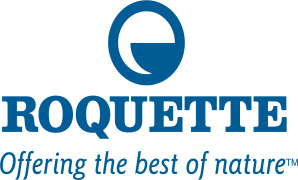News
Covid-19: Companies’ ethical claims in the spotlight
12 Apr 2020Businesses around the world have spent huge amounts of time and money trying to convince consumers of their ethical credentials. Now, they are being put to the test.
The novel coronavirus pandemic has led many food, beverage and ingredient companies to cut staff as their revenues have dropped, but some others have made moves to support hard-hit employees and communities, and to donate their resources to the fight against Covid-19. The actions of companies during this period could resonate with consumers for a long time.

According to Innova Market Insights, the prevalence of ethical claims on new food and beverage products grew 47% from 2013 to 2017. Properly certified claims, whether related to people, the environment or animal welfare, tend to be very good for business. According to The Ethisphere Institute, the stock price of the most ethical publicly traded companies is 6.4% higher than the S&P 500 average, suggesting that consumers are swayed toward buying from more philanthropic and ethical firms.
Of course, a growing number of companies has introduced redundancies to protect their bottom line during the outbreak – and undoubtedly, this is not always a matter of choice. But the current situation is without precedent, as workers and manufacturers alike are being forced to answer, “What would you do to protect your business, your community, your staff and your customers?” And consumers are paying attention to how various companies are responding.
US-based Hormel Foods, for instance, has pledged $1 million and food product donations to help the food insecure, citing its “strong balance sheet and stable cash flows” as well as particularly high demand for its branded products, which include processed meats, peanut butter and microwave meals. With an estimated one in ten Americans already newly unemployed as a result of the crisis, the number of people reliant on such donations is likely to increase dramatically in the coming weeks.
Meat processor Tyson Foods has also pledged $13 million worth of community grants and products to non-profit organisations in communities where Tyson plants are located. In addition, it has said it will pay $60 million in bonuses to its frontline staff, including truckers and factory employees, amounting to $500 per employee to be paid in the first week of July.
Alcohol manufacturers have started producing hand sanitizer and disinfecting alcohol solutions to help cope with shortages, from the very largest conglomerates like Anheuser-Busch and Diageo, to craft breweries like UK-based BrewDog. And other, less obvious companies are also helping out in this way, including ingredient suppliers Roquette and Cargill, which are both donating alcohol solutions to European healthcare institutions.
France-based Roquette – normally specialised in pea protein and other pea-derived ingredients – modified a production line at a pilot plant (and gained the necessary regulatory approvals) to make 5,000 litres of hydro-alcoholic disinfectant per week, which it will provide to around 20 healthcare facilities in the north of France. Cargill made its first donation of 60,000 litres of disinfecting alcohol to the Dutch government in March for use in hospitals and medical centres, and says it aims to help other governments through its network of European factories.
One alcohol manufacturer that has been particularly impacted by the outbreak is Guinness, as St Patrick’s Day celebrations were cancelled worldwide. Even so, it has pledged $500,000 to its workers’ local communities, and a further $1.5 million to support Irish bar staff and the elderly.
Increasingly, social distancing measures are giving consumers in developed countries an opportunity to consider their consumption patterns more carefully. Bearing in mind that many had already become more interested in brand storytelling and ethical shopping, those companies that act in the community spirit may see benefits that far outlast the current crisis.


